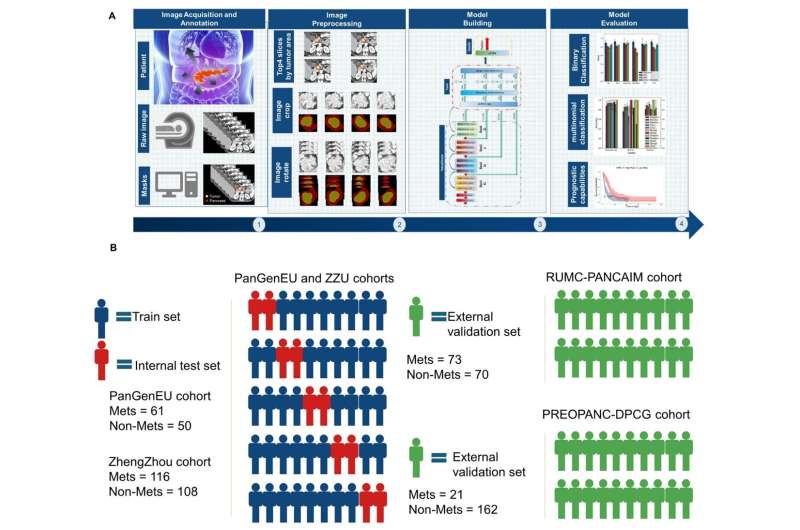When deciding whether to operate or not, consultants must know the primary tumor has already spread to other organs. If it has spread—if there is metastasis—surgery is not recommended. The problem is that in pancreatic cancer, this is very difficult to determine. Nowadays, a significant number of patients are undergoing unnecessary surgery when their metastases have not been detected in time.
A team led by Núria Malats, from the National Cancer Research Centre (CNIO), has developed an algorithm that accurately predicts the presence of metastasis using medical images of the primary tumor.
It is a high-performance deep-learning model which is looking promising in terms of helping surgeons and doctors to detect metastases. It could fine-tune planned surgery and improve outcomes for pancreatic cancer patients, as stated in the publication Gut.

